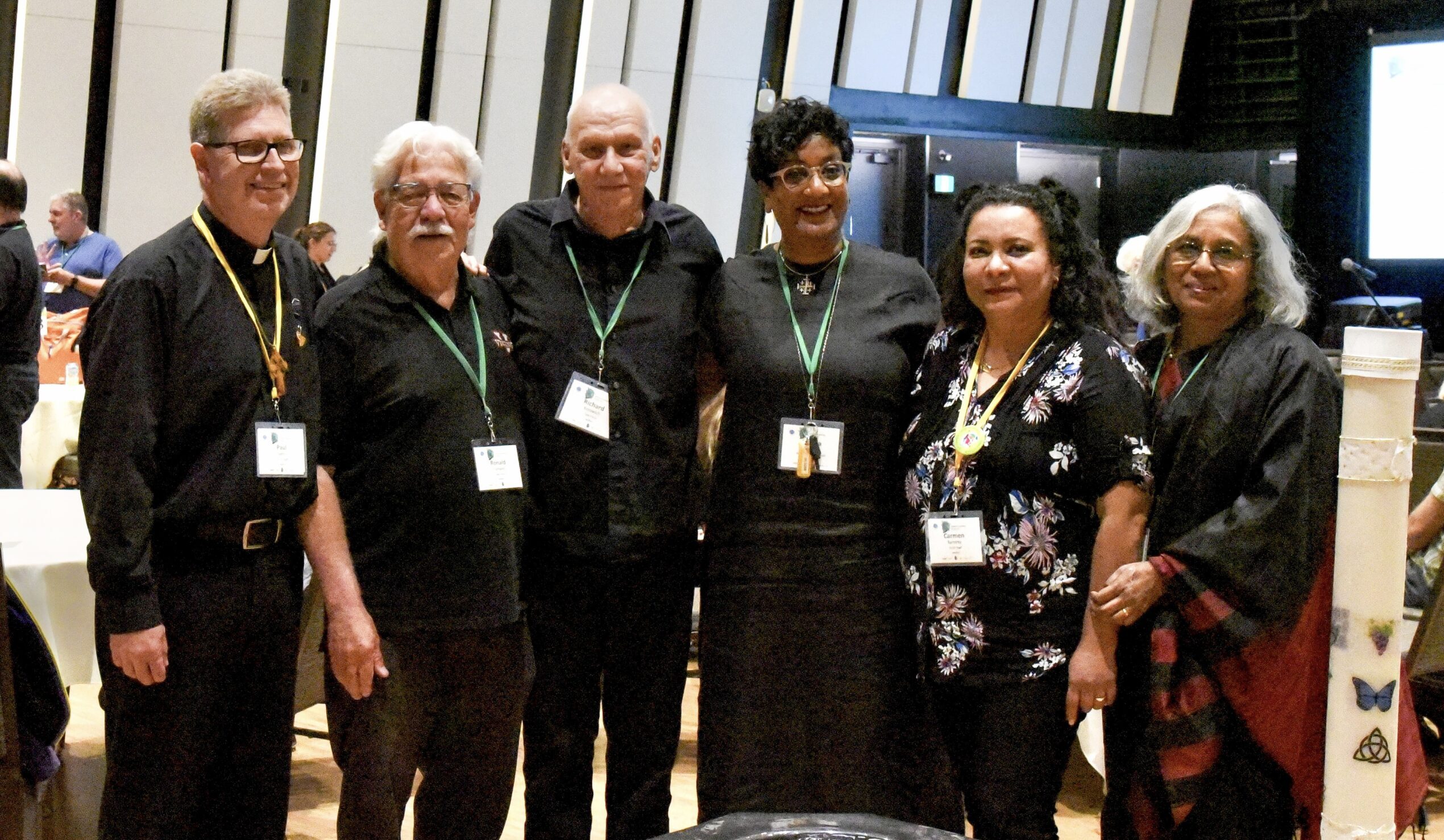Thursday afternoon’s second plenary session for the 2023 ELCIC Special Convention included time to hear from two of the four task forces that will make reports and recommendations to Lutheran delegates.
The ELCIC Task Force Addressing Ableism, as well as the Task Force Addressing Racism, White Supremacy and Racial Justice Issues both shared an introduction to their reports and recommendations, and responded to questions from delegates.
Throughout the 2023 ELCIC Special Convention, delegates will hear from four task forces, all which were formed out of convention action at the 2019 ELCIC National Convention. Each task force has four sessions on the overall agenda – an opportunity to introduce the task force and their work, time for question and answers, table conversation, all which will lead up to a final session where the task force recommendations will form motions for consideration by convention delegates.
During this second plenary session, Judy Verge and Deacon Sarah Rudd presented on behalf of the Task Force Addressing Ableism and Accessibility. Rev. Aneeta Saroop, Richard Kotowich, Rev. Ron Flamand, and Dr. Joy (Mary) Philip presented on behalf of the Task Force Addressing Racism, White Supremacy and Racial Justice. The work of the two task forces have been supported by national office staff members Carmen Ramirez and Rev. Paul Gehrs.
“We as a church have an opportunity to create environments welcoming to all by asking how we can help and then providing opportunity for each person to be their full self as a child of God,” said Deacon Rudd.
“God in God’s infinite wisdom and the gene pool in its immense diversity gave rise to quite a few of us varied in size shape, colour, orientations, ethnicities, abilities, you name it,” shared Kotowich. “There is nothing wrong with that. We are all beautiful. The ugliness or the segregational differences, for that we are responsible… So, what can we do? Or, better yet, what are we called to do as the church?”
Both groups expressed their gratitude to delegates for their engagement in the question-and-answer portion of the agenda. “It is so fantastic to hear the engaged discussions during the table conversations,” said Deacon Rudd, noting the Task Force Addressing Ableism received over 20 questions to bring back to the question-and-answer portion of their agenda time.
Both task forces received questions relating to resources and in their responses, both task forces highlighted the work of Carmen Ramirez, newly hired at the ELCIC National Office as Assistant to the Bishop for Diversity, Equity and Inclusion. A new presentation on Ableism will be available in early 2024, resources for both task forces have been added to the national website, and four racial justice workshops are in the process of being rolled out.
Rev. Saroop urged delegates who didn’t know where to begin this work to, “just try something,” noting that even the well-developed resources available from groups like the Eastern Synod Racial Justice committee had to begin somewhere. “Just try anything,” she encouraged. “Pretend it’s your computer or your printer. Just turn something off and turn it on again. Just trying anything.”
The written report and recommendations from the Task Force Addressing Ableism can be found in Appendix 16 of the Bulletin of Reports, and the report and recommendations from the Task Force Addressing Racial, White Supremacy and Racial Justice Issues can be found in Appendix 17 (https://elcic.box.com/s/f09yav5aleu58wriv77n8fyqhl3lo82y).
The Task Force Addressing Carbon Neutrality and the Task Force Addressing Homophobia, Biphobia and Transphobia will present their reports in session three of the ELCIC Special Convention on Friday, June 30.



